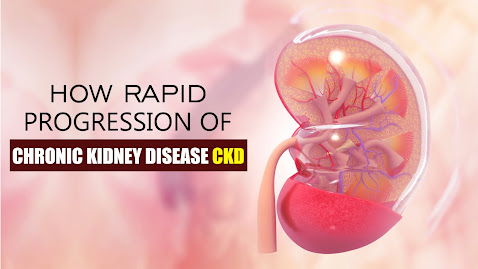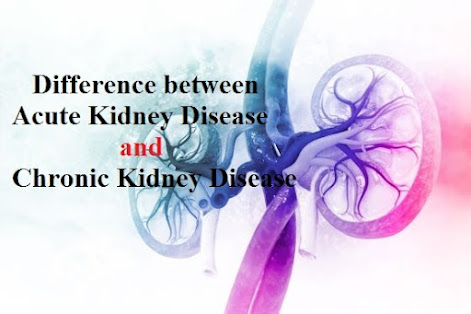 |
| What are the First Signs of Kidney Stones? |
Kidney stones are something that you probably do not wish even for your worst enemy to experience. Researchers have found that the pain of kidney stones is very similar to that of delivery pain, with an average pain score of 7.9 out of 10.
We recently surveyed a woman with four children who experienced a kidney stone, and her take on kidney stones was like
“I am a mother of 4 children, and also had one kidney stone which had brought a storm over my health. She also mentioned that I would rather have four more children than having one more kidney stone”.
In India, the estimated prevalence of kidney stones of around 12% of the population is prone to have kidney stones. Around 12 to 50% even leads to a permanent loss of kidneys due to severe renal damage. (Ayurveda treatment for chronic kidney disease)
Before we move further, let’s take a closer look at kidney stones and the symptoms that come along with them.
What is a kidney stone?
Kidney stone is a complex crystal deposit of minerals and salts that form inside your kidneys. Kidney stones primarily occur when your body has a higher concentration of waste materials than fluids, allowing waste products to stick together and turn into a stone termed kidney stones.
Kidney stone is likely to occur in people with less water intake, leading to low urine output, preventing waste products from flushing out from the body. Kidney stones are a complex of 80% of calcium and 20% of uric acids, commonly reported in people with low urine output.
How do you detect kidney stones?
Kidney stone is mainly diagnosed with radiating pain that goes down into the stomach to your genital area. A person with kidney stone often experience excruciating pain in a region around kidneys along with some severe complications, such as-
- Feeling pain in the lower abdomen and groin
- Having pain or burning sensation while peeing
- Feeling the blood in the urine
- Having pin, red, or brown urine
- Having bubbly or foamy urine with a foul smell
- Nausea and vomiting
- Having frequent urges to pass urine
Why are kidney stones so painful?
When passed down to ureters, kidney stone causes urine obstruction in the kidneys that cause excruciating pain that can be fatal than childbirth. What happens is: your system tries to flush out the urine from the body that passes down from the kidney into the ureters, but from the other end, the stone is blocking it, which triggers intense pain in the stomach are your genitals.
Let’s understand this with an example-
If a sewage pipe gets clogged and somehow the water flows inside from the other end, the pipe can expand. Obstruction in the urinary tract or the ureters causes great pain, leading to a permanent loss of kidneys’ functioning. (Ayurveda treatment for chronic kidney disease)
Are there any risk factors for kidney stones?
Kidney stone is common in people who drink less water. Your kidneys are mainly dependent on water to function, allowing kidneys to filter toxins and pollutants from the blood. Low water intake will lead to low urine output that can make you vulnerable to having urinary stones. Also, people with sedentary or inactive lifestyles are more likely to have kidney stones. A sedentary lifestyle with a poor diet can make you obese, making you prone to have diabetes.
The primary factor of kidney stones is high salt intake and animal-sourced protein, such as red meat, chicken, pork, beef, mutton, etc. — anything you kill for a taste or to eat can make your urine acidify that create a perfect environment for a kidney stone to develop in the kidneys. (Ayurveda treatment for chronic kidney disease)
You’re likely to have kidney stones if you have a strong family history of kidney stones. (Ayurveda treatment for chronic kidney disease)
What is the treatment?
Kidney stones greater than 5mm require renal surgery to extract the stone from your system; however, stones smaller than 5 mm usually pass out independently. Your doctor may do ultrasound scans on your kidney to determine the size of the stone.
One common myth of kidney stones is “Beer is good for kidney stones.”
This is a bizarre delusion, and we advised you not to approach this technique; it can be dangerous. Beer is a diuretic in nature that causes lots of urges to pass urine. It may help for a stone smaller than 5mm to pass through the urinary tract, but larger than 5mm can make your condition more miserable.
Ref- https://www.fortishealthcare.com/blog/consume-beer-pass-kidney-stones-myths-facts).
Some biological stresses which can cause kidney stones
Be aware of some risk factors that can increase your risk of developing stone such as-
- Type 2 diabetes
- Crohn’s disease
- Grout
- Primary hyperparathyroidism
Is it possible to cure kidney stones with painkillers?
Most pain medicines are lab-prepared with the complex of harmful chemicals that can temporarily relieve the pain, but the effect of medicines fuels out very soon without actually curing the primary drivers of the problem. (Ayurveda treatment for chronic kidney disease)
Also, these medicines can leave some severe physical abnormalities on the body that can affect your health later in your life. If you’re looking for a permanent revival of your kidneys’ functioning, then try Ayurveda treatment for CKD kidney disease.
Ayurvedic treatment for CKD is based on the formulation of several powerful herbs, leaves, and fruits that remove kidney stones from the body naturally without any surgical procedures that can be pretty risky.
Brief of Ayurveda
Ayurveda is the “Science of Life” passed down for centuries from one generation to another. Ayurveda has become a hype bubble for the past few decades; the real reason behind it is the gift of holistic health that it offers with a cure. Apart from healing the physiological aspects of problems, Ayurvedic treatment also focuses on establishing the connectedness between your mind, body, and spirit that promotes disease-free life. (Ayurveda treatment for chronic kidney disease)
Useful Link:
Ayurvedic Management of Chronic Kidney Disease CKD
Source of Content: What are the First Signs of Kidney Stones?





